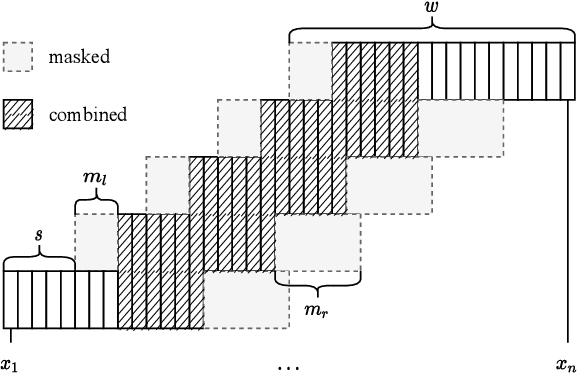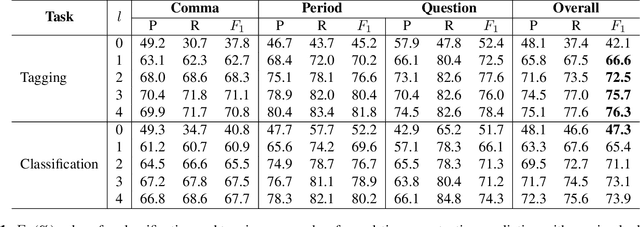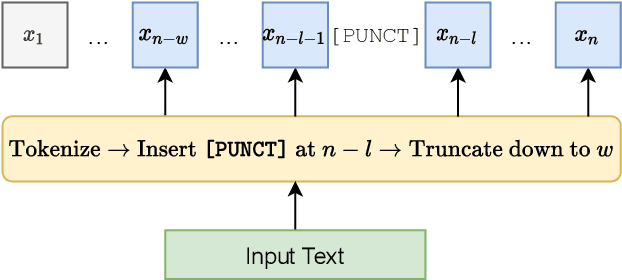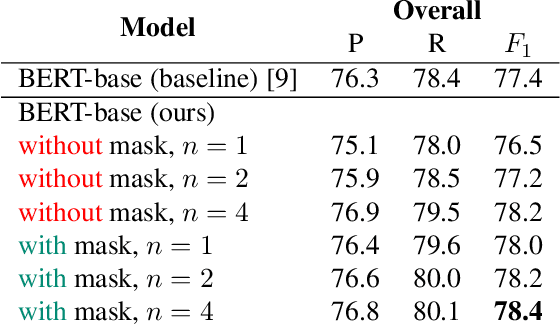Mask-combine Decoding and Classification Approach for Punctuation Prediction with real-time Inference Constraints
Paper and Code
Dec 17, 2021



In this work, we unify several existing decoding strategies for punctuation prediction in one framework and introduce a novel strategy which utilises multiple predictions at each word across different windows. We show that significant improvements can be achieved by optimising these strategies after training a model, only leading to a potential increase in inference time, with no requirement for retraining. We further use our decoding strategy framework for the first comparison of tagging and classification approaches for punctuation prediction in a real-time setting. Our results show that a classification approach for punctuation prediction can be beneficial when little or no right-side context is available.
* 4 pages, 3 figures, submitted to ICASSP2022
 Add to Chrome
Add to Chrome Add to Firefox
Add to Firefox Add to Edge
Add to Edge